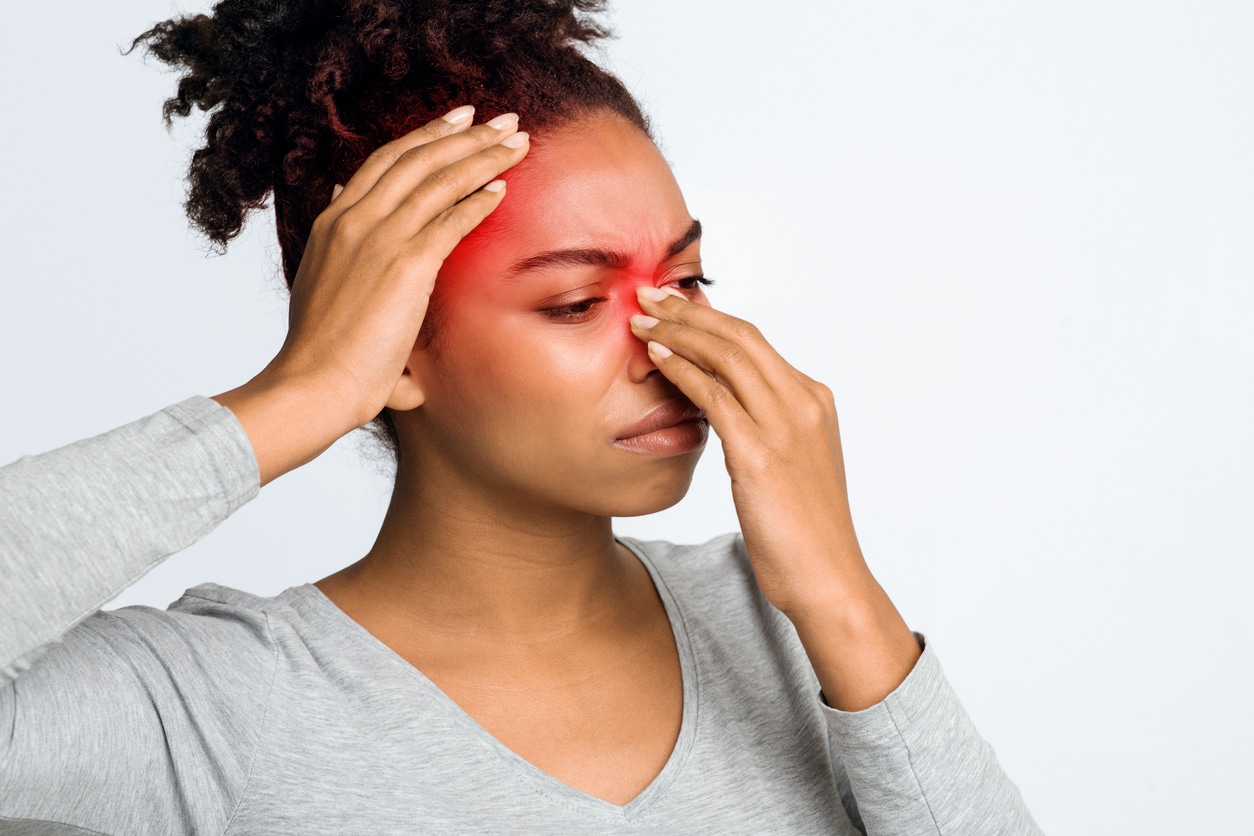If you’ve ever felt a heavy, full sensation in your ears or sinuses, you know how uncomfortable it can be. It can make simple tasks like sleeping, enjoying your favorite foods or even focusing on daily activities difficult. Understanding what causes this pressure and how to relieve it can help you feel better faster.
What Causes Sinus Pressure?

Sinus pressure occurs when the delicate tissues lining your sinuses become inflamed and swollen. This often leads to mucus buildup, making your face feel full and congested. Some common causes include:
- Colds and flu. Viral infections can inflame the sinuses, leading to congestion and discomfort.
- Sinus infections (sinusitis). Sinus infections can cause prolonged inflammation, leading to sinus congestion and pressure.
- Environmental irritants. Smoke, pollution, allergens and strong odors can irritate the sinuses and cause inflammation.
What Causes Ear Pressure?
Your ears rely on the Eustachian tube, which connects the middle ear to the nose and back of the throat, to regulate pressure. When this tube gets blocked or doesn’t function properly, you might notice fullness, discomfort or even muffled hearing. Some common triggers include:
- Colds, flu and sinus Infections. Infections can affect the Eustachian tube, leading to ear pressure.
- Allergies. Inflammation from allergies can cause sinus and ear swelling, interfering with ear pressure regulation.
- Elevation changes. Airplane travel, hiking or diving can disrupt the balance of pressure in your ears.
The Link Between Sinus and Ear Pressure
Your sinuses and ears are connected, so congestion in one can often lead to discomfort in the other. When sinus inflammation spreads, it can impact the Eustachian tube, making it difficult to regulate ear pressure properly and leading to ear pressure or infection.
How to Relieve Ear and Sinus Pressure
Most mild sinus infections and related ear pressure issues resolve on their own, but there are steps you can take to feel better faster:
- Use a nasal decongestant. Short-term over-the-counter sprays or medications can reduce swelling and open the sinuses.
- Try a saline rinse. Flushing your nasal passages with a saline solution can help clear mucus and allergens.
- Manage allergies. If allergies are the cause, antihistamines, allergen avoidance or long-term allergy treatments like immunotherapy can provide relief. Start by avoiding known allergens. For example, avoid Fairgrounds Park on high pollen days if you’re allergic to pollen. If you need extra relief, make an appointment with one of our allergy specialists.
- Chew gum or swallow. If you have ear pressure from altitude changes, chewing gum, yawning or swallowing can help equalize it.
- Consider Balloon Sinuplasty. A specialist may recommend Balloon Sinuplasty, a minimally invasive procedure to open the sinus passages, for chronic sinus infections.
- Seek treatment for chronic ear issues. If you have frequent Eustachian tube dysfunction, your ENT provider can help identify the cause and find the right treatment.
For more information on managing your ear and sinus pressure, contact Alpine Ear Nose & Throat PC today.